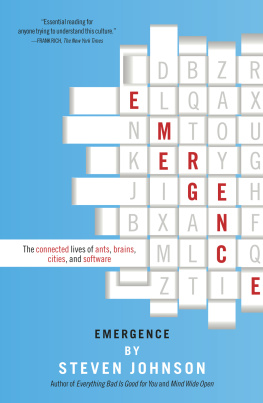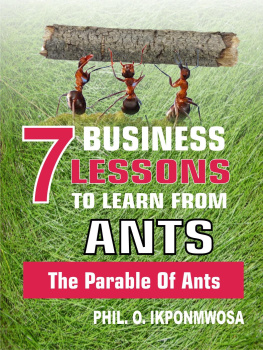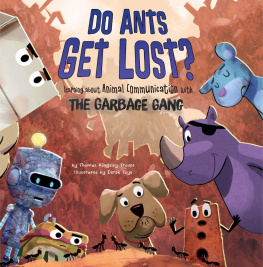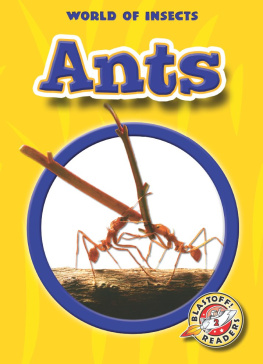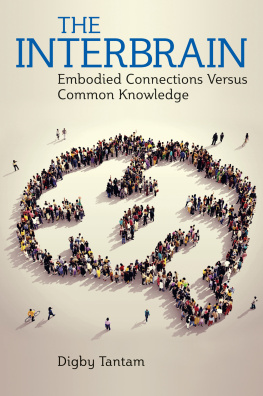Johnson - Emergence : the connected lives of ants, brains, cities, and software
Here you can read online Johnson - Emergence : the connected lives of ants, brains, cities, and software full text of the book (entire story) in english for free. Download pdf and epub, get meaning, cover and reviews about this ebook. City: New York, year: 2004, publisher: Scribner, genre: Romance novel. Description of the work, (preface) as well as reviews are available. Best literature library LitArk.com created for fans of good reading and offers a wide selection of genres:
Romance novel
Science fiction
Adventure
Detective
Science
History
Home and family
Prose
Art
Politics
Computer
Non-fiction
Religion
Business
Children
Humor
Choose a favorite category and find really read worthwhile books. Enjoy immersion in the world of imagination, feel the emotions of the characters or learn something new for yourself, make an fascinating discovery.
- Book:Emergence : the connected lives of ants, brains, cities, and software
- Author:
- Publisher:Scribner
- Genre:
- Year:2004
- City:New York
- Rating:5 / 5
- Favourites:Add to favourites
- Your mark:
- 100
- 1
- 2
- 3
- 4
- 5
Emergence : the connected lives of ants, brains, cities, and software: summary, description and annotation
We offer to read an annotation, description, summary or preface (depends on what the author of the book "Emergence : the connected lives of ants, brains, cities, and software" wrote himself). If you haven't found the necessary information about the book — write in the comments, we will try to find it.
Emergence : the connected lives of ants, brains, cities, and software — read online for free the complete book (whole text) full work
Below is the text of the book, divided by pages. System saving the place of the last page read, allows you to conveniently read the book "Emergence : the connected lives of ants, brains, cities, and software" online for free, without having to search again every time where you left off. Put a bookmark, and you can go to the page where you finished reading at any time.
Font size:
Interval:
Bookmark:
Additional praise for Emergence by Steven Johnson
Its easy to see why there arent more books like Steven Johnsons Emergence : Only Johnson knows how to write them.... A tour de force.
Harvey Blume, The American Prospect
A fine new book... brainy but convivial.
Erik Davis, The Village Voice
Thoughtful and lucid and charming and staggeringly smart, all of which Ive come to expect from Steven Johnson. But its also important, I thinka rare, bona fide glimpse of the future.
Kurt Andersen, author of Turn of the Century
A lucid discussion of a fascinating and timely set of ideas.
Steven Pinker, professor of psychology, MIT, and author of How the Mind Works and Words and Rules
Emergence will make understanding emerge in your own head, as Steven Johnson explains a lot of phenomena you may not even have noticed.
Esther Dyson, author of Release 2.0
Johnsons clarity is a boon.... Thought-provokingand deeply appealing to the inner iconoclast.
Kirkus Reviews
Johnson skillfully weaves together the growth of cities, the organization of protest movements, and the limits and strengths of the human brain.
J. G. Ballard, The Daily Telegraph
Intelligent, witty, and tremendously thought-provoking.
Chris Lavers, The Guardian
Johnson verbalizes what we are beginning to intuit.
The Sunday Times (London)
A LSO BY S TEVEN J OHNSON
Everything Bad Is Good for You: How Todays Popular Culture Is Actually Making Us Smarter
Mind Wide Open: Your Brain and the Neuroscience of Everyday Life
Interface Culture: How New Technology Transforms the Way We Create and Communicate
Thank you for purchasing this Scribner eBook.
Sign up for our newsletter and receive special offers, access to bonus content, and info on the latest new releases and other great eBooks from Scribner and Simon & Schuster.
C LICK H ERE T O S IGN U P
or visit us online to sign up at
eBookNews.SimonandSchuster.com

for my wife

Diagram of the human brain ( Courtesy of Mittermeier )

Map of Hamburg, circa 1850 (Courtesy of Princeton Architectural Press)
Most of all, we need to preserve the absolute unpredictability and total improbability of our connected minds. That way we can keep open all the options, as we have in the past.
It would be nice to have better ways of monitoring what were up to so that we could recognize change while it is occurring.... Maybe computers can be used to help in this, although I rather doubt it. You can make simulation models of cities, but what you learn is that they seem to be beyond the reach of intelligent analysis.... This is interesting, since a city is the most concentrated aggregation of humans, all exerting whatever influence they can bring to bear. The city seems to have a life of its own. If we cannot understand how this works, we are not likely to get very far with human society at large.
Still, youd think there would be some way in. Joined together, the great mass of human minds around the earth seems to behave like a coherent, living system. The trouble is that the flow of information is mostly one-way. We are all obsessed by the need to feed information in, as fast as we can, but we lack sensing mechanisms for getting anything much back. I will confess that I have no more sense of what goes on in the mind of mankind than I have for the mind of an ant. Come to think of it, this might be a good place to start.
L EWIS T HOMAS , 1973
Emergence is a book about swarms, ant colonies, neighborhoods; a book about crowds and groupsand the intelligence those groups can possess, given the right circumstances. But books themselves are another matter. Yes, there are book groups and public readings, but most of the production and reception of books involves another social architecture, not solitary exactly, but more like a series of one-on-one exchanges: between writer and editor; writer and reader; writer and critic. (Not to mention the one-on-one interviews that are so crucial to a book like this one.) I remember running up against this tension as I was writing Emergence in 2000 and early 2001; here was a book that was a full-throated celebration of the hive mind, but the medium of the book itselfthe medium that I most loved, and around which I was beginning to build a careerseemed to belong to a different class: a dialogue between individuals, not a chorus.
But then the book came out, and the world surprised me: the swarm in the story of Emergence the book didnt manifest until its readers started to do things with it. In the years that followed its publication, I began to hear word of the books influence on a wonderfully diverse range of fields and professions: from New Urbanists rebuilding neighborhoods and planning new communities; from city mayors in Brazil creating new models of participatory democracy; from the strategists behind Howard Deans groundbreaking use of the Internet to build grassroots support for his presidential run in 2004; from Web entrepreneurs and game designers; from experts in management theory, who had begun to think of supply chains as ant colonies; from artists designing new forms of algorithmic expression that showcased the unpredictable creativity of emergent systems.
There was one other unanticipated twist. The book was published in the United States during the first week of September 2001. Emergence happened to end with a look at the decentralized, swarm-like protest movements that had begun to capture the worlds attention, such as the 1999 anti-WTO protests in Seattle. Then, the week after the book was published, my own city was attacked by a decentralized network of terrorists. Before long I learned that Emergence was being widely read inside the Defense Department and the CIA, as those organizations struggled to adapt to the reality of waging war against networks instead of states.
Emergence was written in the more intimate space of the writer and the reader. But the ideas were ultimately unleashed and reimagined by the crowd. Some of those new applications were more appealing to me than others; some led to genuine breakthroughs, while others turned out to be red herrings or dead ends. But that is the strange truth about all emergent systems: they have a life of their own.
Other books of mine have sold more copies. Others have generated more attention and public debate. But no book of mine has cast such a strange and eclectic shadow of influence. I look forward to watching all the surprising ways in which this new digital version of Emergence will extend that shadow.
Steven Johnson
August 2012
Marin County, California
In August of 2000, a Japanese scientist named Toshiyuki Nakagaki announced that he had trained an amoebalike organism called slime mold to find the shortest route through a maze. Nakagaki had placed the mold in a small maze comprising four possible routes and planted pieces of food at two of the exits. Despite its being an incredibly primitive organism (a close relative of ordinary fungi) with no centralized brain whatsoever, the slime mold managed to plot the most efficient route to the food, stretching its body through the maze so that it connected directly to the two food sources. cognitive resources, the slime mold had solved the maze puzzle.
Next pageFont size:
Interval:
Bookmark:
Similar books «Emergence : the connected lives of ants, brains, cities, and software»
Look at similar books to Emergence : the connected lives of ants, brains, cities, and software. We have selected literature similar in name and meaning in the hope of providing readers with more options to find new, interesting, not yet read works.
Discussion, reviews of the book Emergence : the connected lives of ants, brains, cities, and software and just readers' own opinions. Leave your comments, write what you think about the work, its meaning or the main characters. Specify what exactly you liked and what you didn't like, and why you think so.

